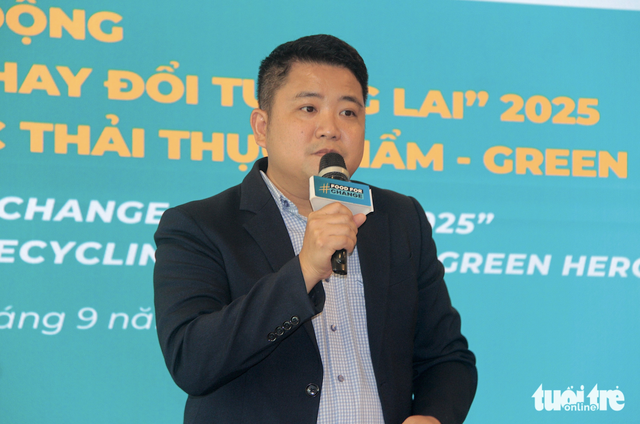
Vietnam wastes nearly $4bn in edible food annually
Vietnam discards more than eight million metric tons of edible food every year, resulting in an estimated economic loss of around US$3.9 billion, heard an event to launch the ‘Green Hero’ food waste recycling initiative in Ho Chi Minh City on Monday.
The figure represents nearly two percent of the country’s GDP.
On average, each Vietnamese citizen generates about 76 kilograms of food waste per year, slightly higher than the global average of 74 kilograms.
Nguyen Tuan Khoi, chairman of the Vietnam Foodbanking Network, highlighted these alarming statistics while stressing that food waste is becoming a global crisis with far-reaching consequences for the economy, society, and environment.
Data from the United Nations Environment Program in 2022 indicated that 1.05 billion metric tons of food were squandered globally, roughly 19 percent of the total food available to consumers.
Other estimates suggest that nearly one-third of all food produced worldwide is either lost or discarded, causing economic losses exceeding $1 trillion annually.
In Vietnam, vegetables and fruits account for 32 percent of total discarded food, followed by meat at 14 percent, and seafood at 12 percent.
Ho Chi Minh City alone generates some 13,000 metric tons of household waste daily, with food waste making up 7,800 metric tons.
Over 88 percent of food waste in major cities ends up in landfills without specialized treatment.
Organic waste processing technologies remain limited, and no comprehensive logistics system exists for post-sorting transportation and recycling.

Nguyen Tuan Khoi, chairman of the Vietnam Foodbanking Network. Photo: Cong Trieu / Tuoi Tre
Launch of ‘Green Hero’ Initiative
The Vietnam Foodbanking Network launched the ‘Food for Change 2025’ campaign alongside the Green Hero initiative on the occasion of the International Day of Awareness of Food Loss and Waste on September 29, in collaboration with the Global FoodBanking Network, Green Journey, the Farmer Vietnam Network, and the Ho Chi Minh City Culinary Association.
Green Hero aims to raise public awareness, deploy technological solutions, and foster connections between farmers and cooperatives.
The initiative will create regenerative farms and innovation hubs, expanding efforts from urban centers to rural communities, contributing to reducing pollution, restoring natural resources, and promoting green livelihoods.
It was designed to focus on processing food waste at the source, transforming it into compost, soil nutrients, or animal feed using black soldier fly and earthworm farming technologies.
Also, it will build a technological ecosystem connecting restaurants, supermarkets, wholesale markets, and farms, creating a circular food chain, said Khoi.
‘Green Hero’ will serve as a bridge, turning waste into community-serving resources like fertilizers, regenerated food, or clean energy,” he added.
Nguyen Thanh Tam, vice-president of the Ho Chi Minh City Chefs Association, emphasized that the initiative provides a more hopeful perspective on saving and recycling food waste.
Managing food waste is a burden for restaurants and hotels, but with this initiative, food waste can be transformed into compost and reused.
The recycling model will not only help businesses save money, but also contribute to improving the living environment, he added.
Tieu Bac - Cong Trieu / Tuoi Tre News
Link nội dung: https://news.tuoitre.vn/vietnam-wastes-nearly-4bn-in-edible-food-annually-103250930133910138.htm